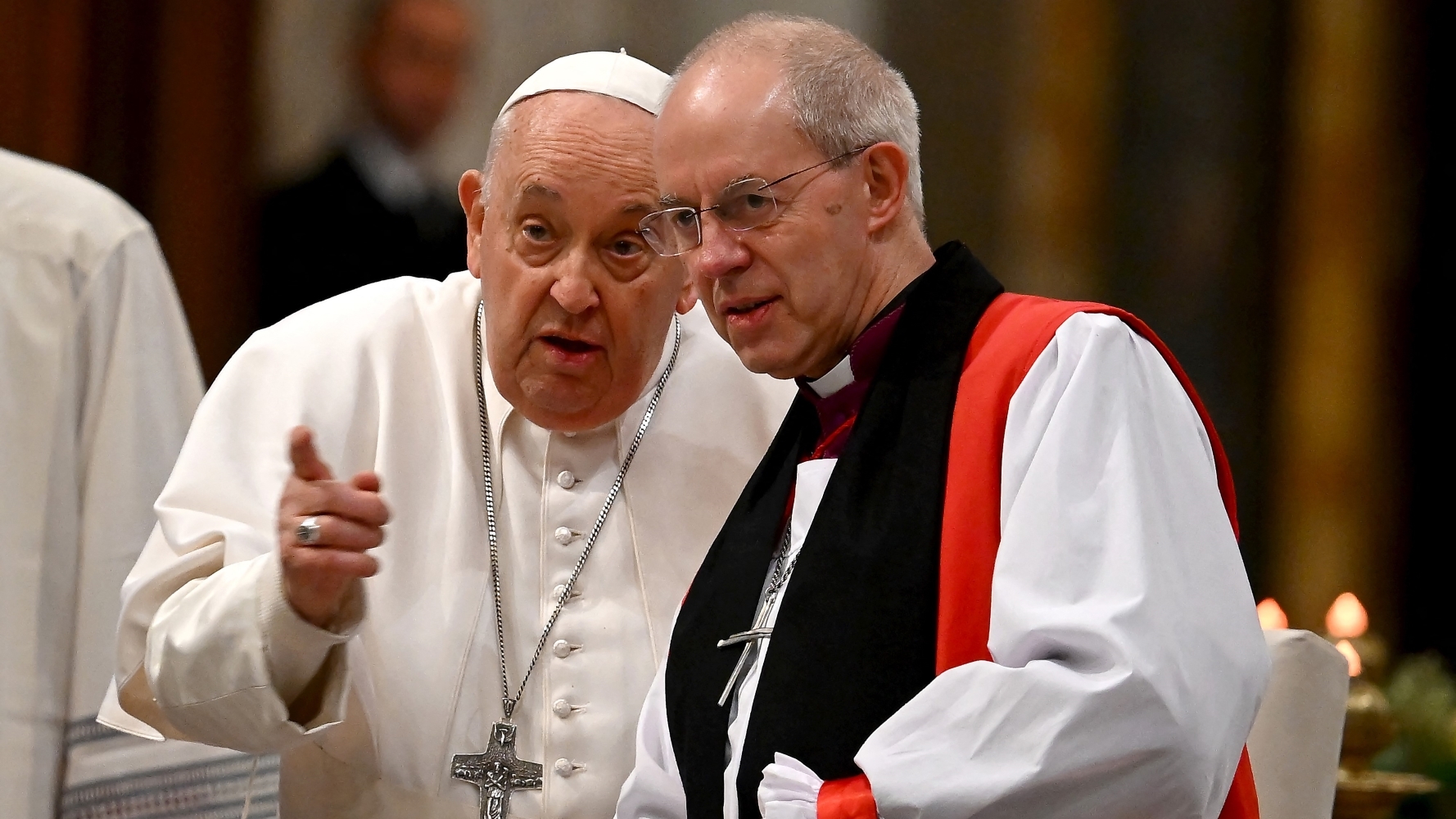Archbishop of Canterbury regrets refusal to meet Palestinian pastor

The Archbishop of Canterbury, Justin Welby, has said he regrets declining a meeting with the Palestinian Lutheran pastor, Munther Isaac, during the latter's recent tour of the UK.
Isaac had previously said that Welby's aides had informed him that the Anglican Church leader would not meet him because he had shared a platform with former Labour Party leader Jeremy Corbyn.
"This sums up the Church of England. They danced around positions, and ended up saying nothing. They lack the courage to say things," Isaac said at the time.
On Thursday, Welby posted a message on X, saying that he regretted his earlier refusal and wanted to meet Isaac in the coming week.
"Recently I declined to meet with Rev Dr [Munther Isaac] during his UK visit," he wrote, continuing: "I apologise for and deeply regret this decision, and the hurt, anger, and confusion it caused. I was wrong not to meet with my brother in Christ from the Holy Land, especially at this time of profound suffering for our Palestinian Christian brothers and sisters.
New MEE newsletter: Jerusalem Dispatch
Sign up to get the latest insights and analysis on Israel-Palestine, alongside Turkey Unpacked and other MEE newsletters
"I look forward to speaking and praying with him next week."
Isaac has been a prominent voice speaking out against Israel's bombardment of the Gaza Strip and has used his church sermons to highlight the suffering of Palestinians.
Earlier in February, he spoke at a mass rally in London hosted by the Palestinian Solidarity Campaign that also featured Corbyn on the platform.
Corbyn has been the subject of antisemitism accusations since taking over the Labour Party in 2015 until his resignation following a general election defeat in 2019.
The former Labour leader has been a vocal critic of Israel and its abuses against the Palestinian people for most of his career.
He was expelled from the parliamentary Labour Party by its new pro-Israel leader, Keir Starmer, and prevented from re-contesting his seat as a Labour candidate.
Corbyn remains persona non grata within the British political establishment and continues to be the subject of critical tabloid headlines.
Middle East Eye delivers independent and unrivalled coverage and analysis of the Middle East, North Africa and beyond. To learn more about republishing this content and the associated fees, please fill out this form. More about MEE can be found here.





